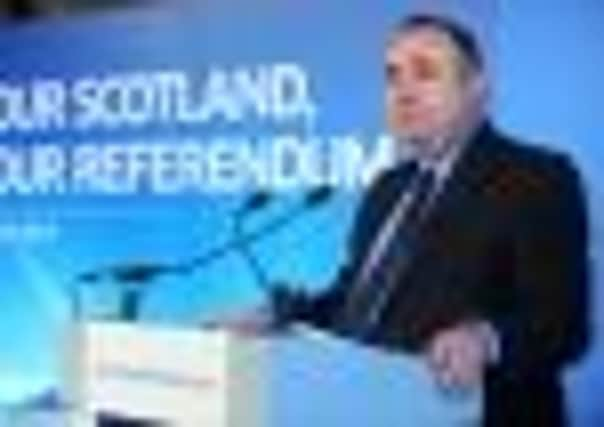Scottish independence: Two-question referendum would be ‘recipe for confusion’


Professor Adam Tomkins, Professor of Public Law at the University of Glasgow, said “on no account may independence and the future of devolution be somehow rolled up into a single referendum”.
Prof Tomkins has written two books on the UK constitution and is a legal adviser to the House of Lords Constitution Committee.
Advertisement
Hide AdAdvertisement
Hide AdIn his submission to the UK Government’s referendum consultation, published on his blog, Prof Tomkins said: “It has been suggested in some quarters, including by a number of the Scottish ministers, that in addition to a question on independence, there should also be some form of question asked at the referendum on ‘devo max’ or ‘devo plus’.
“This would be wholly and completely inappropriate.”
He added: “On no account may independence and the future of devolution be somehow rolled up into a single referendum: such would be a recipe only for voter confusion, for highly ambiguous results, and for widespread incomprehension - the very opposites of the features and values that successful referendums must possess.”
He said neither “devo max” nor “devo plus” could “intelligibly find their way on to a referendum ballot paper” as “neither term is defined”.
He added: “As far as can be ascertained, their pursuit is the policy of no political party.”
He also rejected the Scottish Government’s preferred question “Do you agree that Scotland should be an independent country?”, preferring instead the question “Should Scotland leave the United Kingdom and become an independent state?”.
He said this question “goes directly to the heart of the matter and expresses the question clearly, accurately, neutrally and fairly”.
Prof Tomkins gave evidence to the House of Commons Scottish Affairs Committee in November, during which he argued that the Scottish Parliament does not have the legislative competence to hold a referendum on Scottish independence.
In his submission, he is critical of Deputy First Minister Nicola Sturgeon’s speech to the University of Glasgow on March 5 in which she was “invited to set out Scottish Government’s view of the legal issues” but “declined to do so, preferring instead to present her political case for advocating independence”.
Advertisement
Hide AdAdvertisement
Hide AdHe said she “sought to rely solely” on a single textbook in support of “her assertion that the Scottish Parliament enjoys the legislative competence”.
Prof Tomkins said: “It took an undergraduate to point out that Glasgow law students are taught that it is a ‘fundamental error’ to rely solely on a textbook when seeking to make a proposition as to what the law provides.”
Prof Tomkins joins Alan Trench, honorary senior research fellow at the constitution unit at University College London, who has also called for a single Yes-No question in his own submission to the referendum consultations.